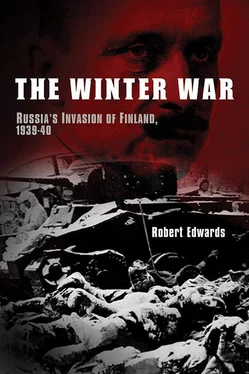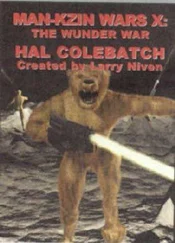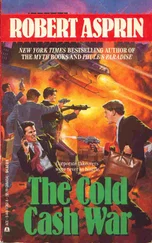As these matters chugged into the public domain, no one was less surprised than Mannerheim, whose opinion of Bolshevism had been forged in 1917 and had not wavered since. His appointment as chairman of the Defence Council—a part-time role, subsidiary to the Defence Ministry, which carried the equivalent pay of an army major—had been made in 1931 but not specifically to combat external threats, as the economic fortunes of Finland, with its unique mix of political interests, subtexts and sentiments, suffered a reverse as savage as any in the wake of the world depression. [17] Except Russia, which, largely dependent upon commodity exports, was hit very hard indeed by the collapse in global demand.
Issues of internal security came strongly to the fore as the vociferous Marxist interest stood up to be counted (and frequently suppressed). It was not perhaps a coincidence that 1931 was also the year in which the Communist Party was declared illegal. The rehabilitation of Mannerheim as a public figure, even a part-time one, sent another eloquent signal to those who had begun to feel that the country was going to the dogs.
In fact, the Finnish Ministry of Defence, showing an unerring misapprehension of military custom, did not even acknowledge that field marshal was a military rank. Technically, therefore, Mannerheim was not a member of the Finnish armed forces, but would become their commander-in-chief if, and only if, Finland found itself at war, and this arrangement was initially made only on an informal basis; successive governments seemed to detect in Mannerheim a streak of impetuosity. He was commandant of the Defence Corps, however, and this historically ‘difficult’ (i.e. conservative) organization, together with its female equivalent, the Lottas, can be said to represent Mannerheim’s peacetime power base under arms. It is also true that these organizations, if asked to choose between their loyalty to the State and their loyalty to the Marshal might at least have paused for thought before choosing the State.
The Defence Corps had evolved into a civic gendarmerie after the war of independence. Politically it was predictably reactionary, with the odd extremist in its ranks. Outside the Defence Corps, in the world of party politics, the contrasts were more extreme, or perhaps merely more clearly drawn; the Patriotic People’s Party (in Finnish, the IKL) had not, despite (or perhaps because of) its clear agenda, been declared illegal, and actually had a representation of fourteen seats in the 200-seat Diet.
Politically, then, Finland was a very rich stew indeed; a disenfranchised but vociferous Communist minority railed against the iniquity of having no parliamentary representation, while the far right, as expressed by the IKL, lounged smugly in the Diet. The middle ground, occupied by Conservatives, Liberals, the Agrarian Party and the Swedish People’s Party, tended to cluster, in tension with the Social Democrats, who while they were intellectually and even emotionally Marxist, were also practical men, and no one more so than their leader, Väinö Tanner. Further, the perception (in such an introverted environment) that perhaps Mannerheim’s demands for military expenditure reflected more his desire for internal rather than external security went deep. There is little evidence for this, but propaganda can bite very deep in times of uncertainty.
Finland’s core difficulty, of course, was simply the length of its border with the Soviet Union. From the Gulf of Finland in the south, to the Arctic Ocean in the north, the border stretched over 800 miles. To defend it, Finland could only put an army in the field of ten under-equipped divisions.
CHAPTER ONE
Naboth’s Vineyard
Should one ask: ‘How do I cope with a well-ordered host about to attack me?’ I reply: ‘Seize something he cherishes and he will conform to your desires.’
Sun Tzu
THERE WERE TWO CLEAR imperatives governing the Soviet Union’s attitude to its north-western border by April 1938; the first was concerned with the recovery of Tsarist territory lost during the chaos of the Revolution and civil war, most of which had been confirmed by the Treaty of Tartu in 1920. [1] Tartu is in Estonia. It is also known as Dorpat.
The second stemmed from that: the realization that the Tsar’s state had been a perfectly viable nation and that these carefully assembled western frontiers reflected an optimum balance between security and territory. By the time Austria ceased to exist, Stalin was less concerned about the Treaty of Tartu (although it had marked a significant humiliation for him as a commissar signatory) but was looking back with evident interest exactly two hundred years prior to that, to the Treaty of Nystadt, the last great territorial transaction to bear the signature of Tsar Peter, and whose core strategic importance had been to protect the approaches to his new capital, St Petersburg, by means of the acquisition of the states of the southern Baltic littoral (then Livonia and Estonia) and to the north-west by extending Russia’s borders all the way across the vital land-bridge of the Karelian Isthmus, which separates the Gulf of Finland from Europe’s largest lake, the Ladoga: ‘The ladies of St. Petersburg could not sleep peacefully as long as the Finnish frontier ran so close to our capital,’ he had announced grandly, by way of justifying his conquest of Viipuri and Karelia.
Tsar Peter’s border was an astute one; it allowed no latitude for Sweden or Finland to defend it (it was far too long) and with the vital Isthmus, controlled from the massive medieval fortress of Viipuri (Vyborg), in Russian hands, any invader headed for Peter’s capital, (for which read a cowed but resentful Sweden [2] Thrashed—soundly—at Poltava in the Ukraine in 1709.
), would be forced to trek north, around the top of the Ladoga, whereupon they might well find themselves starving in an inhospitable and unexploitable wilderness. By 1938, however, Sweden was no longer the potential, or even the natural, enemy.
More than this, though, was the embarrassing counterpoint to the Soviet Union which the evident success of the Finnish project (as compared to the Soviet one) pointed out. The two undertakings (in these iterations, at least) were of an age, but the contrasts could not have been stronger. In Finland, the industrious population enjoyed 100 per cent literacy (in either Finnish, or Swedish). A policy of state-sponsored redistribution of land had led to the break-up of the great rural estates which had characterized the country before the civil war, augmented by the strategic release of much state-owned acreage. [3] The autonomous Grand Duchy (last incumbent Nicholas II), had owned 40 per cent of the usable agricultural land.
Critically for the fortunes of the rural population, the country had no history of serfdom; thus the change of state which the Russian peasantry had undergone in 1861 (and which had left them little better off) was unknown. The population was rising as the birthrate edged up from a very low base and thus the school population was burgeoning, reflecting that vital demographic essential for progress. With great irony, secondary school fees were actually lower in Helsinki than they were in Moscow. These were subjects about which Moscow naturally maintained an embarrassed silence.

Further, Finnish industrial and agricultural production had leaped over the period by amounts which still beggar belief, particularly the latter, which was extracted from (outside the Pripet marshes) one of the most agriculturally unpromising chunks of real estate in Europe. Agricultural production had increased by an average of 400 per cent, paper production by the same and lumber output by 550 per cent. The number of independent farmers had increased by 250 per cent to 300,000 as the great estates, which had characterized rural life in Finland at the time of the Great War, were broken up and handed to their tenants on agreeable terms. In short, Finland was accomplishing astonishing growth by the very opposite means to those employed by her giant neighbour to the east, where the attempts to collectivize farmland had led to class war of a different kind.
Читать дальше












